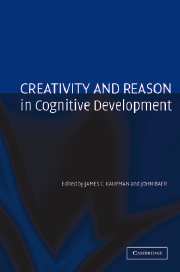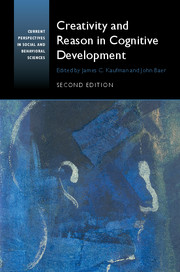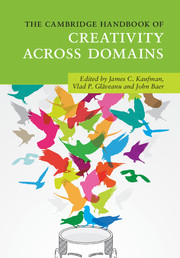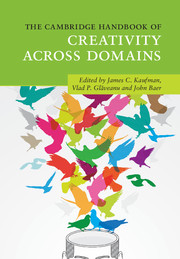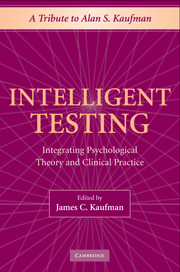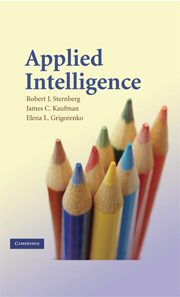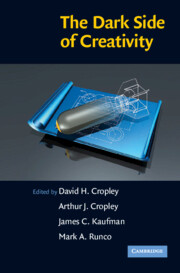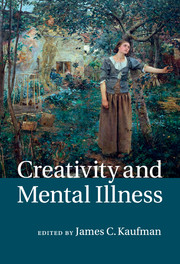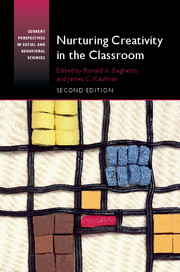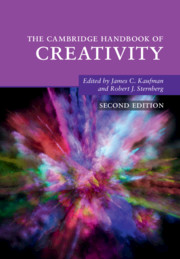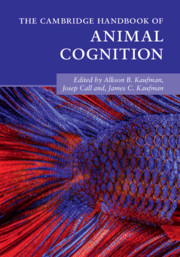Creativity and Reason in Cognitive Development
- Editors:
- James C. Kaufman, California State University, San Bernardino
- John Baer, Rider University, New Jersey
- Date Published: June 2006
- availability: This ISBN is for an eBook version which is distributed on our behalf by a third party.
- format: Adobe eBook Reader
- isbn: 9780511189975
Find out more about Cambridge eBooks
Adobe eBook Reader
Looking for an inspection copy?
Please email [email protected] to enquire about an inspection copy of this book
-
To what extent do creativity and imagination decline in childhood? What factors might influence a decline? Theories of cognitive development show only uni-directional progress (although theorists may disagree whether such progress occurs steadily in small continuous improvements or comes in stages separated by plateaus during which developmental gains are consolidated). Declines in levels of skill are quite uncommon, yet many have observed just such an unusual pattern with regard to the development of creativity and of the imagination. Is there something about the development of one kind of thinking that undermines imaginative and creative thinking? Is it perhaps the process of schooling itself, with its focus on the acquisition of knowledge and the production of correct (rather than imaginative) answers, which promotes this decline? This book explores these questions from a variety of perspectives. Essays from psychologists and educators from diverse backgrounds discuss the relationships among creativity, reason, and knowledge.
Read more- The central question is of particular interest to parents with creative children who want to learn more about their child
- The chapters consider development of reasoning and creativity at all levels, from early childhood through adulthood
- The book examines the relationship between reasoning skills and creativity in both typical development and in the development of genius
Customer reviews
Not yet reviewed
Be the first to review
Review was not posted due to profanity
×Product details
- Date Published: June 2006
- format: Adobe eBook Reader
- isbn: 9780511189975
- availability: This ISBN is for an eBook version which is distributed on our behalf by a third party.
Table of Contents
1. Preface James C. Kaufman and John Baer
Part I. Cognitive Perspectives:
2. Expertise and reason in creative thinking: evidence from case studies and the laboratory Robert W. Weisberg
3. Creative genius, knowledge, and reason: the lives and works of eminent creators Dean Keith Simonton
4. Dynamic processes within associative memory stores: piecing together the neural basis of creative cognition Adam S. Bristol and Indre V. Viskontas
5. The creativity of everyday moral reasoning: empathy, disgust and moral persuasion David A. Pizarro, Brian Detweiler-Bedell and Paul Bloom
6. Reasoning and personal creativity Mark A. Runco
7. Alternative knowledge structures in creative thought: schema, associations, and cases Michael D. Mumford, Cassie S. Blair and Richard T. Marcy
8. The role of the knowledge base in creative thinking John F. Feldhusen
9. The role of domain knowledge in creative problem solving Richard E. Mayer
10. Creative thinking and reasoning: can you have one without the other? Daniel Fasko, Jr.
11. From alexithymia - born of trauma and oppression to symbolic elaboration, the creative expression of emotions, and rationality Warren TenHouten
12. Opening up creativity: the lenses of axis and focus Mia Keinänen, Kim Sheridan and Howard Gardner
Part II. Developmental and Educational Perspectives:
13. Creativity in young children's thought Susan A. Gelman and Gail M. Gottfried
14. A young artist's story: advancing knowledge and the development of artistic talent and creativity in children Susan M. Rostan
15. Is it reasonable to be creative? Jacques-Henri Guignard and Todd Lubart
16. Does culture always matter: for creativity, yes
for deductive reasoning, no! Weihua Niu, John X. Zhang and Yingrui Yang
17. Higher level thinking in gifted education Joyce VanTassel-Baska
18. The relationship among schooling, learning, and creativity: 'all roads lead to creativity' or 'you can't get there from here'? Ronald A. Beghetto and Jonathan A. Plucker
19. How early school experiences impact creativity: an ecological perspective Cynthia Paris, Nancy Edwards, Ellyn Sheffield, Maureen Mutinsky, Terri Olexa, Susan Reilly and John Baer
20. Conclusions John Baer and James C. Kaufman.
Sorry, this resource is locked
Please register or sign in to request access. If you are having problems accessing these resources please email [email protected]
Register Sign in» Proceed
You are now leaving the Cambridge University Press website. Your eBook purchase and download will be completed by our partner www.ebooks.com. Please see the permission section of the www.ebooks.com catalogue page for details of the print & copy limits on our eBooks.
Continue ×Are you sure you want to delete your account?
This cannot be undone.
Thank you for your feedback which will help us improve our service.
If you requested a response, we will make sure to get back to you shortly.
×
